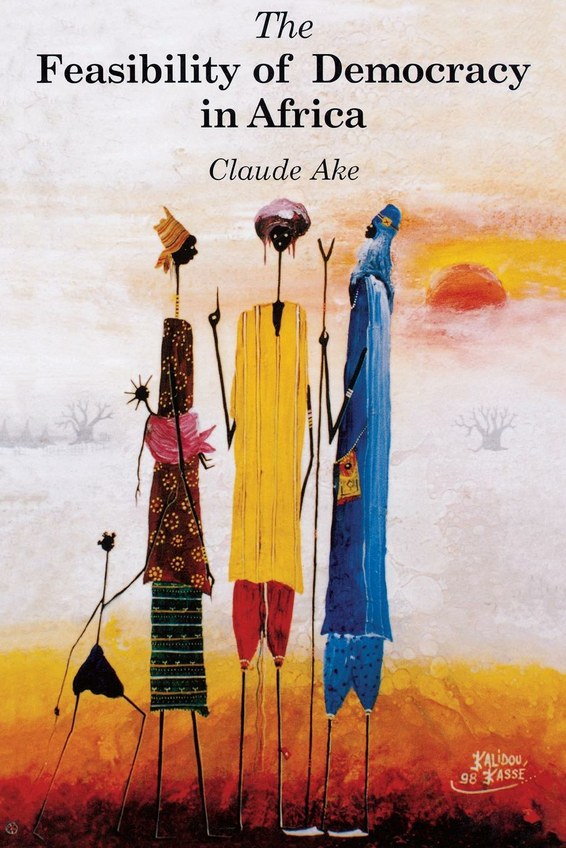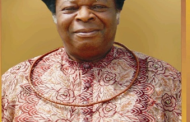By Ambassador Usman Sarki
Returning to the issue of elections in Africa and the entrenchment of credible democratic governance across the continent has become unavoidable especially in the wake of unconstitutional changes in power in some African countries. The Sudan, Chad, Mali, Guinea and Burkina Faso, have been visited with this virus and others like Niger and Guinea-Bissau narrowly escaped the contagion. There is no certainty that this phenomenon will not spread to other countries like an unwanted epidemic, since complacency in government and mismanagement of opportunities are invitations for the emergence of negative trends and tendencies.
In this second and subsequent installment on elections and democracy in Africa, attempts will be made to highlight deficiencies and improvisations that lead to the phenomenon of unconstitutional changes of government, and the mechanisms that have been put in place by regional institutions to prevent such from happening, at least in theory. Bad governance, complacency, and the general lack of a sense of inclusiveness by large segments of the population in many countries, account for the ready acceptance of the military’s involvement in politics.

Come rain, come shine, the people are there to vote but only for the votes to be hijacked and for usurpers to emerge. Why won’t the people jubiliate when another set of usurpers displace the original usurpers when a coup occurs. It isn’t illogical!
 Otherwise, there would have been widespread repudiation and resistance to the military in Mali, Guinea and Burkina Faso after the insurrection against their elected governments. Instead, what we witnessed was the disturbing trend of jubilation on the streets of the capitals of these countries, where the opposition parties and the so-called civil society have welcomed the military’s return to politics. Patriotism can both be useful and odious, and when the military usurpers drape themselves with the national flag and tie the sash of patriotism, it assumes the specter of a costume party, but with a deadly sense of earnestness that readily tramples on all civil liberties.
Otherwise, there would have been widespread repudiation and resistance to the military in Mali, Guinea and Burkina Faso after the insurrection against their elected governments. Instead, what we witnessed was the disturbing trend of jubilation on the streets of the capitals of these countries, where the opposition parties and the so-called civil society have welcomed the military’s return to politics. Patriotism can both be useful and odious, and when the military usurpers drape themselves with the national flag and tie the sash of patriotism, it assumes the specter of a costume party, but with a deadly sense of earnestness that readily tramples on all civil liberties.
The ambivalence of the population and the fickle sentiments of the masses about politics contribute in no small measure to instability in many African countries. Where there is no sense of a collective ownership of any process but a variegated feeling of indifference towards everything to do with governance and the way things are done in any given country, it becomes a matter of time before incidents are manufactured or engineered to bring about some developments that would constitute an effrontery to our sensibilities.
The volatility of passion and unstable temperament usually constitute the combustible mixtures that undermine civil rule and democratic dispensations everywhere, more so in inherently unstable systems that are prone to fluctuations of temper and situations as are obtainable in Africa. Where the conditions are not deeply rooted and the mentality and attitudinal frameworks are rather disparate and disjointed from the commitment to ideals and ethos, it will be difficult to expect prolonged traditions of governance based on set principles and constructs.
The failure of the African political elites and establishments to develop and entrench frameworks and attitudes of accountability and good governance over several decades after independence has affected our dispositions towards governance itself, and the democratic tradition in general. To undo this tendency and to bring about a positive outlook towards civil rule, the collective observance and adherence to the principles of good governance will become indispensable.
This becomes even more urgent and significant when considered against the universal culture of peace, accountability and development, which today constitute the fundamental aims of governance and also underline the interrelationships between and among nations and peoples. It is therefore important that Africans realise the fact that they are doing a favour only to themselves and to no one else by imbibing both the spirit and letters of global best practices in democratic governance and accountability under the law.

Is South Africa a different story?

Gen El-Sisis, the strongman of Egypt
Without these we shall remain perpetually mired in our own incompetence and structural inadequacies that have so far contributed to our relegation to the backwoods of universal progress and civilisation. We must not underestimate or delude ourselves about the relevance of accountable government and democratic rule in our countries. Democracy is no longer a distant or an alien project that concerns only one people or race, and that does not matter to our collective well-being and happiness. It has now become a global phenomenon albeit practiced in different forms and from various situational perspectives and idiosyncrasies.
Nevertheless, it is the foundation of the collective good in terms of inclusiveness and participation in shaping the destinies of our peoples and nations. Some of the practical challenges to our democracy in Africa come from both institutional weaknesses and the lack of strong and credible political party organisations in many of our countries. The transient nature of political organisations and the lack of deep roots in their respective communities have brought about a sense of impermanence in our democratic practices.
Apart from a few countries where political parties have become more or less permanent fixtures of the governance frameworks such as in South Africa, there are little or no active consciousness of the existence of structures that could groom generations after generations of politically active, articulate and attentive people. The demoralising and debilitating impacts of rampant corruption and general insecurity in many African countries especially in the Sahel region, have made it possible to infuse in people a sense of lingering despair that gives little or no room for reflection about matters like democracy, good governance, human rights and liberties etc, when people have been reduced to the fastidious attachment to day-to-day worries of existence only.
Apathy and fear, driven by uncertainty and exacerbated by corruption and indifference, have always been the bane of good governance and accountability. These have become so entrenched in Africa that today they pose the greatest and most insidious challenges to the successful entrenchment of democracy in our continent. It is not however entirely impossible that Africans will perfect their democratic systems and establish the right conditions for the flourishing of good governance all over the continent.
Given the right conditions and attitudes, and the conducive environment for its establishment, democracy will take root in Africa and become the norm rather than the exception. The fundamental principles and values necessary for the entrenchment of democracy have already been articulated and established in some normative and governance frameworks in Africa as alluded to already. The African Union and ECOWAS for instance, have been particularly mindful of the importance of advancing the democratic process in their member-states.
They have especially repudiated unconstitutional or forceful changes in governments as evidenced by the numerous pronouncements and decisions of their different organs and proceedings. They have also taken a decisive stance against tenure elongation through unconstitutional means, or by subtle instigating of constitutional amendments in favour of sitting presidents, as has happened in several countries, and became the source of discontent and instability. Such attempts have invariably created tensions in the concerned countries and polarised their communities through artificially induced instability.
From the above, it becomes necessary that we should be reminded of the various frameworks that exist in Africa that are aimed at entrenching democratic governance and averting unconstitutional take-over of power in our countries. Some general references to these mechanisms in the African Union (AU) and ECOWAS will be made particularly with regards to the all-important matter of elections that normally constitute the first pillar of any democratic dispensation, and the harbinger of controversies and instability.




























